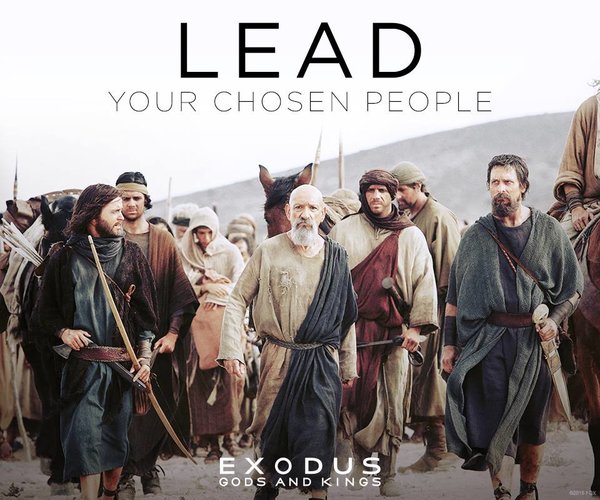Exodus movie echoes Prince of Egypt, not Bible
February 25, 2015
By Mati Hurwtiz, Sports Editor
The new film Exodus: Gods and Kings, starring Christian Bale, begins with Prince Ramses and his brother, Moses, returning from Egyptian battle against the Hittites. Both Moses and Ramses are princes and sons of Pharoah. As in The Prince of Egypt story, Pharoah dies and Ramses becomes king.
However, none of this is documented in the Torah. It says in Shemot that “a new pharaoh arose” before Moshe was born, but the Torah never mentions Ramses as more than a city. Although this notion is suggested by hieroglyphics and Egyptian tradition, it is absent from the Torah itself.
Named for the biblical story of Moshe Rabbeinu’s life in Egypt, Hollywood’s latest Exodus seems to accurately evoke Jewish history. Live action and more gruesome than Prince, it emphasizes the brutality of Jewish slavery in ancient Egypt and Moshe’s quest to discover himself while emphasizing God’s power.
But the movie more closely parallels The Prince of Egypt than the Torah, repeating some of its errors, and changing even more of the traditional narrative.
The biggest plot twist this time is that Moses doesn’t believe he is Jewish and in fact fervently denies it. This is a prevalent theme in the first half of Exodus, apparently trying to enhance Moses’ heroism because of the degree of difficulty he overcame in recognizing his origins.
Aaron and an elder try to convince Moses of his roots, but he only accepts their testimony after Ramses almost kills Miriam – something which does not happen in the Torah at all. Up to this point in the movie, Moses hasn’t felt a connection to the Jewish people.
In the Torah, on the other hand – Shemot 2:11 – Moshe kills an Egyptian to save a man he recognizes as a Jewish “brother,” then escapes from Egypt.
In the movie, God comes to Moses in a dream, and then through the burning bush — as in the Torah — instructs him to return to Egypt save his people.
In the film this is his initial acquainting with the Jewish people, while as described in the Torah, he was clearly returning to what he knew to be his roots.
And then there’s the new film’s characterization of God. While nobody knows what God actually looks like, the movie producers portray Him as a seven-year-old white kid with a British accent.
Perhaps this was to express that God’s form is irrelevant but His power is unrivaled. But because of God’s changed role in the movie, Moses’ return to Egypt and the narrative of the makkot are far different from in the Torah.
The 10 plagues, too, are depicted quite differently in Exodus than in Shemot. Firstly, the movie skips over Moshe’s duel with Paroh’s taskmasters by turning his staff into a serpent or leprosy.
Secondly, instead of warning Pharoah about plagues that are coming, Moses in the movie tells him to just watch and see what the Hebrew god can do to the Egyptians. Nowhere in the film does God vayechezak lev paroh, or harden Pharoah’s heart, in between the plagues, and perhaps most surprisingly, there is no discussion at all between them about freeing the Jews.
Exodus seems to see this scene to as an exhibition of God’s omnipotence, and not about Moses negotiating with Pharoah in between plagues.
Later in the movie, Pharoah finally lets the Jews leave Egypt after God’s 10th plague proves too much for the Egyptians to handle. But as the Torah suggests, the Egyptians pursue the Jews all the way to the Red Sea. Here the movie and Torah align.
But then, when it is time to cross the Red Sea, it doesn’t split for the Jews at God’s command, but just dries out — resembling the California drought then kriryat yam suf. It does, however, show the Egyptians later engulfed by crashing waves.
Based on textual evidence, it seems the producers failed to portray Moses correctly. However, if their goal was to portray Moses’s psychological progression while emphasizing the unequivocal power of God, perhaps they succeeded.
If you are unfamiliar with the biblical narrative, then Exodus does tell the story and relishes in a religious spirit. The story as a whole is moderately accurate, perhaps capturing enough of a religious essence to overshadow the inconsistencies with the Torah.
But the movie was not that exciting, so I would not recommend it over other current features in the movie theaters.













